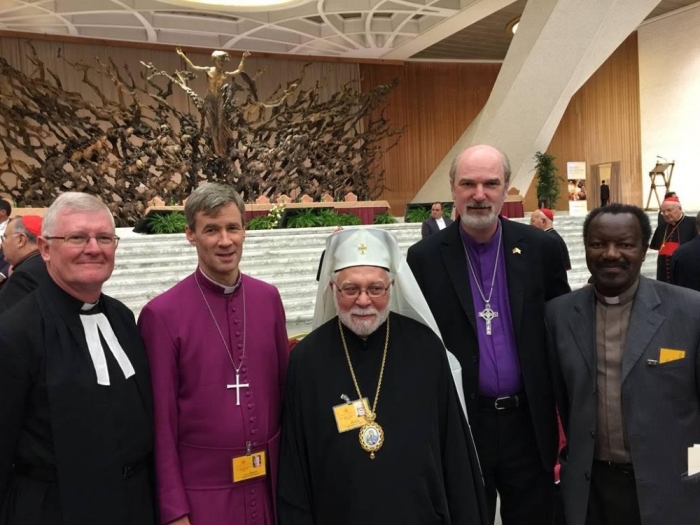Inside the Vatican Synod on Family: Pope Francis Urges No Behind Closed Doors Discussion (Day 15)

Editor's note: The Christian Post has arranged with noted evangelical Dr. Thomas Schirrmacher, an expert on and friend of The Catholic Church, to provide exclusive and rare coverage of the World Synod of the Catholic Church scheduled for October 3-24.
This Vatican Synod is generating great interest among Catholics and Evangelicals alike as Pope Francis continues to make overtures for increased cooperation with Evangelicals to protect religious freedom in a world of increased persecution of Christians.
Schirrmacher is president of the International Council of the International Society for Human Rights und Ambassador for Human Rights and executive chair of the Theological Commission of the World Evangelical Alliance, the largest evangelical association in the world.
Only one evangelical was invited to this year's three-week Synod: Dr. Schirrmacher. Below is his exclusive CP blog post from this historic meeting:
October 18, 2015
We just celebrated 50 years of the Vatican Synod.
In a Catholic "Council", all Catholic bishops meet to discuss and decide together. The final documents are seen as totally binding on the Church, if the Pope agrees to them.
Between the Council of Trent in the 16th century acting to the Reformation and the First Vatican Council 1870, which decided that the Pope is infallible if he teaches something from his chair in Rome ("Ex cathedra"), there was no council.
The 1870 council was more something dismissing the power of a council, even though only once a Pope chose to use the "ex cathedra" power, when in 1950 Paul XII announced the direct bodily assumption of Mary into heaven.
It was the Second Vatican Council with now more than 2,700 bishops that gave the chance for a broad discussion and major changes. The Catholic Church accepted and proclaimed religious freedom, called lay people to read the Bible, and changed the liturgical language from Latin to the vernacular languages.
In line with this, in 1965 Pope Paul VI installed the Synod of Bishops, which meets whenever the Pope calls for it. It is a mix out of senior staff in the Vatican, delegates invited by the Pope, and, the larger part, bishops elected by the national bishops conferences.
Even though it officially only counsels the Pope, it was nevertheless a giant step, insofar as even the Cardinals hardly new each other.
Pope Francis stated in his book Evangelii gaudium, that the collegiality of bishops, which the Second Vatican Council called for, has not really been approved under his two predecessors — one of those amazing honest words of the present Pope. So it is no wonder that he not only has called in a synod twice, but made major changes. Evangelii gaudium, and the synods, discussed the same topic and included research worldwide — thus there obviously is a lot of debate between the two synods.
He also urged the bishops to state their opinions and to really discuss. He strengthened the small language groups and gave them much more influence in the synod. And it is obvious here in Rome that in the last fourteen days delegates are getting more and more used to their role.
Now in his speech at the 50th anniversary of the synod the Pope insisted on broad discussion and theological debates in the one, not behind closed doors, being to the nature of the church and that he will search for even better ways to make it work.
Of course non-Catholics still have to get used to the idea that even the results of two synods of up to three hundred people discussing for weeks only produce a text that are offered to Pope as propositions. Nevertheless, a synod is the right way.
Cardinal Schönborn of Vienna, who presented the major lecture at the jubilee, reminded the church of Acts 15: When there was heated discussion and vision in the church, the apostles did not leave it to private discussions or local animosity, but called all together. They did not just discuss sterile theological concepts, but first of all reported on what God was doing and how the church on the spot looked in reality.
A Cardinal giving a Bible study as the main speech for a Catholic synod is in line with what many delegates have been called here for: That the Bible is used more to argue in favor of marriage and family and is not only used to quote commandments, as if it were a judicial text, but is quoted to show the wealth of faith and experience we can have, if we trust God.




























